The peninsula of Qatar has been admired for centuries, for both its natural beauty and entrepreneurial potential. The water has welcomed fishermen, divers, and adventurers, who have found their calling among the waves.
Pearl diving and fishing were once pillars of the economy. Fishermen would voyage in their pearling boats, or dhows, to scavenge for these jewels. With neither oxygen tanks nor any modern technology, the divers would use pieces of wood to pinch their noses and leather sheaths on their hands and feet as they explored the depths of the Qatari waters. While Qatar has grown into an international business hub no longer economically reliant on these seafarers, pearl diving continues to be a much-celebrated tradition in the history that has made Qatar.
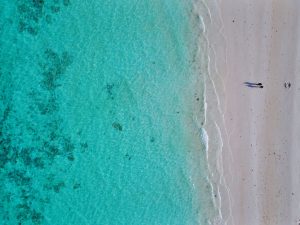
Now the water is as much a place for play as for work. From kayaking in the mangroves to kitesurfing along the shore – Qatar attracts adventurers from near and far who come to show off their extreme sporting skills, making the most of the unparalleled marine opportunities presented by the expansive Qatari coastline.
The reason why people come to the water may have changed, as has the equipment used, but the passion and love for Qatar’s waters have remained a constant, and will continue for centuries to come.
View this post on Instagram
Every year, Qatar Museums collaborates with a country to run a cultural exchange programme that conveys Qatar’s culture to an international audience and introduces new cultures to Qatar. The yearlong programme promotes mutual understanding, recognition and appreciation between the countries through a variety of exhibitions, festivals, competitions and events.
The 2021 Year of Culture is taking place between Qatar and the United States of America, marking the 10th edition of Qatar’s Year of Culture programme. These two countries enjoy a longstanding relationship, which is being both celebrated and deepened through this cultural collaboration. Some of the events that have taken place include fashion talks, film screenings, art exhibitions, public art installations, photography exchanges, a food festival and a series of mural projects.
View this post on Instagram
One of the most recent collaborations was the creation of a mural by Qatari artist Mubarak Al Thani and American artist Wes Wong, which was erected in the Mission District neighbourhood of San Francisco.
With the use of colourful paints and abstract shapes, Mubarak recreated buildings from the iconic Doha skyline. The Zig Zag Towers and Qatar Foundation’s ‘2015’ building found new homes in the mural alongside iconic landmarks from San Francisco, such as the Golden Gate Bridge and the famously crooked Lombard Street.
Of his experience, Mubarak says, “regardless of all the challenges, San Francisco has been phenomenal. A super supportive and diverse team. I could not have asked for a better cultural experience. Wishing this Year of Culture the very best!”
Qatar Museums’ M7 is Doha’s newest epicentre for innovation and entrepreneurship in fashion, design, and technology. Located in the heart of Msheireb Downtown Doha, M7 is dedicated to developing Qatari talent through expert mentorships and connecting local innovators with influential creatives from around the world. Q Life profiled M7 to learn more about their creative endeavours.
View this post on Instagram
What was the inspiration behind founding M7?
Qatar is not short of talent, we have many designers that cannot evolve because of the lack of a creative ecosystem. M7 is built on the notion that it would create a healthy and vibrant creative ecosystem and environment for those talents. It was clear that creatives needed the right infrastructure to grow and be able to be sustainable. M7 is part of many efforts to build a creative economy and create a thriving creative scene in Qatar.
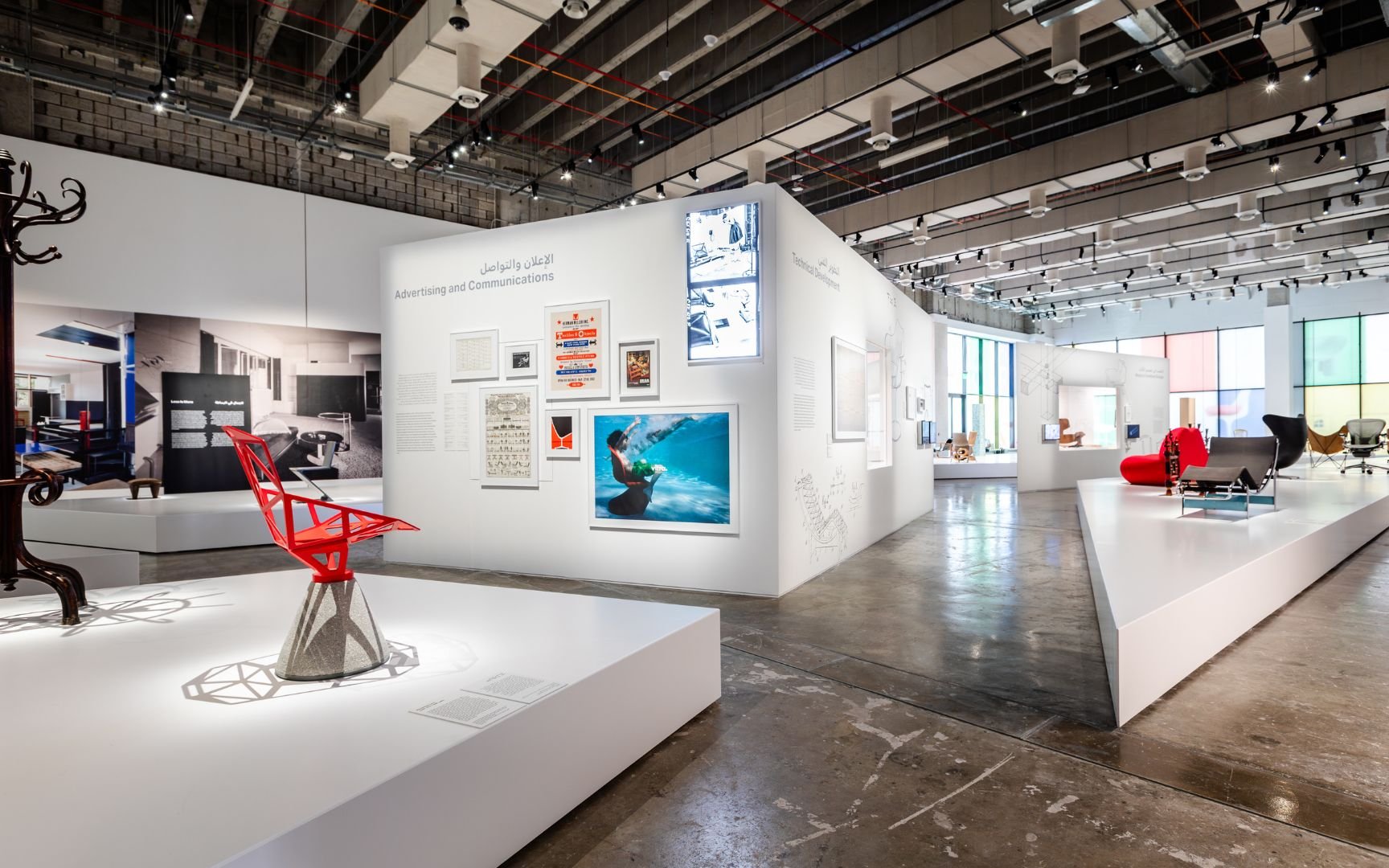
How is M7 benefiting the creative industry within Qatar?
Our goal is to bring together designers, creatives, and support organisations all under one roof to create an environment that is conducive to creativity and innovation. We see our role as encouraging collaboration, creating opportunities, showcasing talent and providing inspiration through our exhibitions. We link designers with industry leaders and help develop this thriving network.
What were some of your most notable collaborations?
We have different levels of collaborations – our Resident Partners include Qatar Development Bank who run the incubator Scale 7, Workinton who run the co-working space, Tariq Al Jaidah through Studio 7, the concept store. We also have educational partners our current partners are Virginia Commonwealth University in Qatar, Ibtechar, Doha Film Institute, and Caravane. We also work with local designers and creatives.
Can you talk us through one of your success stories at M7?
Ghada Al Subeay – a local designer who created her own brand, started to support other local designers, and created a community through her work. She has now established The Cutting Studio to take that concept further and continue to use her experience to support other designers.
Describe your partnership with Fashion Trust Arabia.
As M7 starts to establish itself, we see Fashion Trust Arabia (FTA) as our regional partner in the fashion industry. We gain a lot of expertise from the team and their network. FTA this year will take place at M7 and we are very excited about that and involving our local community. We would like more Qataris to participate and facilitate communications with our local audience to better understand and gain confidence in order to be part of the regional scene.
How does M7 mould influential and unique industry professionals?
When M7 was established, we really thought about the designers’ journey and the different stages they may go through and their unique needs. Through our programming and along with our partners, we provide opportunities for young professionals to take their talents further, to think about the business aspect and how they can be sustainable.
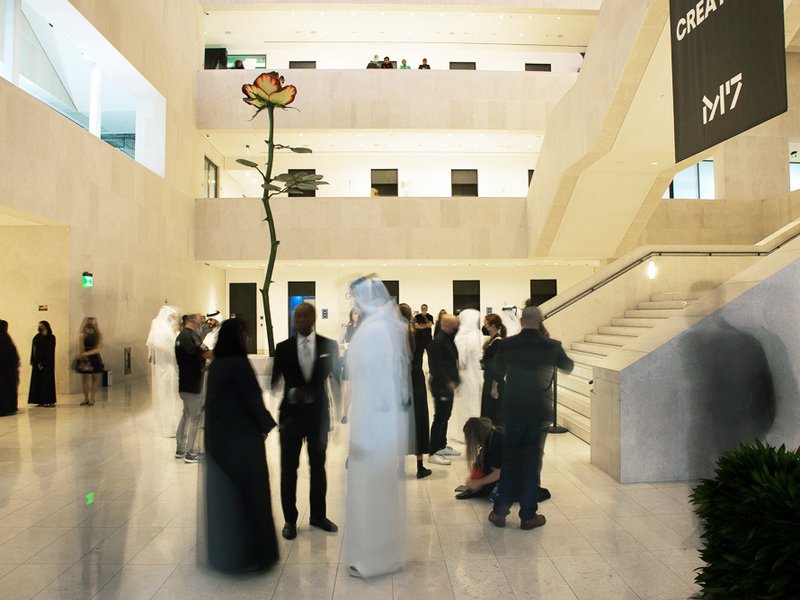
What does the future hold for M7?
It is a very exciting time for M7 and for the creative economy. We have no doubt that we will continue to see this industry grow and evolve. We are very excited about seeing brands incubated and growing out of M7.
Hamad Mubarak Al Hajri is a self-proclaimed “TechPreneur”, investor and engineer. He started his project, Snoonu, with the goal to impact people’s lives. Snoonu is now one of Qatar’s most popular e-commerce delivery companies, which is known for its speed and efficiency.

“My vision is to change the world through innovative tech solutions and to make Qatar the leading technological hub for entrepreneurs”, Hamad says.
The road to success for an entrepreneur is always bumpy, but Hamad believes it is essential to never give up. “My other previous project failed, but I never gave up. I started to analyse the problems to try to look for solutions to come back stronger”.
His tenacious, entrepreneurial spirit is what pushed him to innovate until he created a product that is much loved by the public. Through this process, he realised the importance of having a dedicated team.
“Building a good, cohesive team is critical,” he says. “I make sure to set small goals for my team and always celebrate all the achievements we accomplish. This is what gives you and the team the encouragement to keep going”.
Hamad also credits the prosperous entrepreneurial space in Qatar as the reason behind the success of many local businesses. “This is a result of the continuous support for entrepreneurship through government institutions that encourage the development of small and medium-sized companies, as this vital sector plays an influential role in Qatar’s economic growth”.
Snoonu is always looking towards the future and embracing the use of artificial intelligence to minimise potential errors and enhance user experience. Hamad can surely visualise a future where deliveries through drones could become a reality, as their benefits include avoiding traffic, reducing delivery time and saving costs.
“We dream big. I have big plans for Snoonu’s future, and we are making steady and consistent steps towards the ultimate dream,” he says.
The public’s response to Snoonu’s services has been incredibly positive. “Snoonu is getting great support from the local community. Locals feel proud to have such an innovative, leading tech company represent Qatar”. This support was evident with Snoonu winning the award for the Best Entrepreneurial Project in Qatar at the 2021 Najah Qatari Festival, which was voted for by the people of Qatar.
A piece of advice Hamad thinks all entrepreneurs need to hear is “believe in your idea. No matter what happens, always have the ambition to move forward”.
Ramzan Al Naimi started his career 22 years ago working at Al Jazeera Network, however, only after two years at the Qatari media outlet, he began his business journey. Delving into various projects, Ramzan was unable to find his calling. He faced challenges along that way that finally led to him to Innovation Café, a product he notes helped him achieve his dreams.
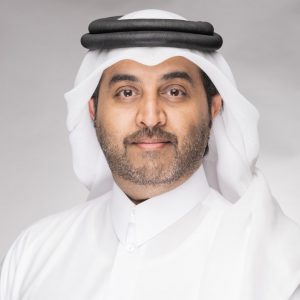
The knowledge and experience he accumulated over years has been put to use, benefiting entrepreneurs across all generations. His belief is to guide newcomers into the world of business and innovation. Al Naimi believes that “ideas are always exchanged in creative places. Sometimes, standard corporate environments could inhibit the potential for creativity and innovation.” This is how he came up with Innovation Café, a unique innovation and design studio.
“I had noticed that people who exchanged business ideas, did so at cafes or unique spaces. I then thought, what if I could build a space where ideas can be shared and built at the same time? This was the inspiration behind Innovation Café.”
His optimistic view of the possibilities and opportunities that the State of Qatar has to offer is what pushes him to continue to achieve. Business owners are at a stage where they look for gaps to fill, and resolve any issues they find in order to make the process easier for start-ups that eventually become hubs for innovation and entrepreneurship.
With help from entities like Qatar Development Bank and Qatar Science and Technology Park, innovators are given the tools they need to venture into their projects. Al Naimi also finds inspiration in the multi-national and diverse cultural population around him. He sees it as being a vital piece to bringing everyone’s entrepreneurial skills together to create something new and unique. To him Innovation Café is the medium that connects people to their entrepreneurial or professional dreams.
Al Naimi is not stopping there, he has many goals for Innovation Café that will support Qatar’s National Vision 2030 by promoting the growth and competitiveness of both the public and private sectors. His advice for aspiring entrepreneurs is to not be afraid to make mistakes as long as you learn from them. “You need to be patient when starting and give it time to reap the fruit of your labour.”
Saif Qazi and Susanna Ingalls are the force behind Urban Point, an incentives based mobile application that allows customers and businesses to connect and mutually benefit in an innovative way. Q Life interviewed the young entrepreneurs to learn more about their success story in Qatar.
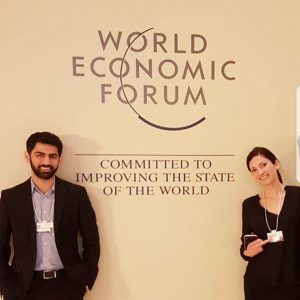
Tell us about your entrepreneurial journey. What has it been like?
Urban Point started as an MBA project at the Mannheim Business School in Germany. The journey has been full of rewards and challenges, and looking back, we are thankful for where we stand today. With thousands of users that love our service, major corporate partners and an amazing team that works with us, it is quite satisfying to see Urban Point’s impact in a fairly short amount of time.
What was the inspiration behind founding Urban Point?
We had the idea that we should develop a subscription-based service, which can be offered as an embedded part of a telecommunications company plans and provide additional value and savings for everyday activities of customers. That was the inspiration behind Urban Point, to help telecommunications companies increase retention and engagement, help businesses get more customers and help customers save on their everyday purchases. We realised that if we can create a successful eco-system, it will benefit all the parties involved and will rapidly grow.
Why did you choose to start Urban Point in Qatar?
As part of our MBA project in Germany, we weighed several different factors to determine which country would be best suited to launch our project. We looked at various criteria, such as population, mobile internet penetration, ease of doing business, cost of living, and many others, and when we used this criteria to examine all the countries in MENA, Qatar topped the list. Since it was a new idea that had never been tried anywhere else, it made sense to launch it in a small ecosystem, test the concept, improve it and then expand to other markets. From that perspective, Qatar made total sense, even though at that time, neither of us had ever visited Qatar or even knew anyone from Qatar.
When we presented this to our program management, they informed us that there is an incoming Qatari student at our university and offered to connect us with them to see if they would be interested in joining our journey. The student was Ali Al Hajri, son of Dr. Khalid Al Hajri who both happened to be in Germany at that time. We met them in Heidelberg, and they agreed to join us in launching our project in Qatar. Dr Khalid Al Hajri became our first investor and company chairman, and we moved from Germany to Qatar to launch Urban Point. Looking back, choosing Qatar as our launch market was one of the best decisions that we could have made. We were lucky to have been matched with Ali and Dr. Khalid, whose leadership and guidance played a pivotal role in our success.
What do you think of the entrepreneurial space in Qatar? How is it developing to offer opportunities for young entrepreneurs and business owners?
We are a great case study for how a start-up should choose Qatar as the launchpad to test a new idea and then expand into other markets. Qatar has many institutions that are dedicated to supporting entrepreneurs. We have benefitted from the local ecosystem, anyone looking to launch a start-up in Qatar is privileged to leverage numerous benefits that are on offer for entrepreneurs in Qatar.
What have been some of your favourite moments or memories as an entrepreneur?
There have been several highlights that have been quite memorable and motivational to keep us going. The launch of our partnership with Ooredoo was quite memorable. We were awarded Mobile App of the Year by Entrepreneur only a few months after our launch, which was a great early confirmation that we might be onto something good. A year later, the World Economic Forum invited us as one of the most innovative start-ups in the MENA region, which was then followed by an Al Jazeera documentary about Urban Point. We won Seedstars Qatar and were then selected among the top 10 finalists for the Seedstars Global Start-up competition, the only Qatari start-up to go that far in the global competition in Switzerland. However, more so than the awards and recognition, it is the positive feedback from users and partner businesses that is always memorable and a great motivation to keep innovating.
How has your partnership with Ooredoo been mutually beneficial?
Urban Point’s partnership with Ooredoo is a classic example of a successful corporate/start-up collaboration. When we were a relatively young and unknown start-up, Ooredoo put faith in our team and helped spread us to the broader market. At the same time, our team focused on developing an excellent product with great value for customers and businesses. Over the last 3 years, we leveraged the opportunity provided by Ooredoo to continuously improve our services and today Urban Point is the leading driver of traffic to some of the biggest brands in Qatar.
What is one piece of advice you would share with aspiring entrepreneurs?
Focus. Don’t try to do everything at once. Entrepreneurs often forget that focus can be a competitive advantage. Identify a unique problem, focus on a unique solution, and try to bring that to market so that you can establish your niche. Once your solution is validated by the market, then you can build on it, but don’t make the mistake of trying to go all in with too many ideas and features. That is a fast way to burn out and fail.
Financial technology, or ‘fintech’, is an emerging new market into which the entrepreneur Mohammed Al Delaimi has delved and excelled. As the Founder and CEO of SkipCash, a mobile payment solution application, he embarked on this journey two years ago.
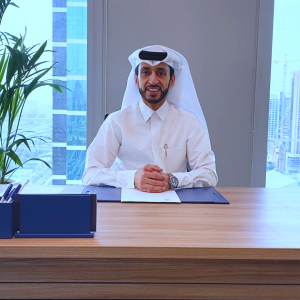
“For me, it has been and still is an inspiring journey, where I am always aiming to achieve better results and to delivery more than expected. This is the vision of the whole team at SkipCash.”
As an avid online consumer, he saw a gap in the market and an opportunity to make the experience more convenient for both the merchant and the customer. The digital solution aims at unifying the mobile payment experience and making all transactions paper-less both online and in stores.
Entering the market as a start-up came with its trials; “I have faced many challenges along the way. The main one was team management and leadership. Managing a big group of people hadn’t been a big part of my career, so for me it’s a continuous learning curve.”
Being in Qatar gave Mohammed a lot of opportunities to develop himself in this field, with the entrepreneurship ecosystem providing numerous resources to grow and develop his idea into reality.
“We have multiple entities that support start-ups. There is the Digital Incubation Centre, where SkipCash is incubated. The Qatar Business Incubation Centre, which is part of the Qatar Development Bank initiative to support small businesses and support innovative ideas. The Qatar Science & Technology Park also have several programmes that support entrepreneurs access development funds to shape their ideas and release them to the market.”
Mohammed has celebrated many milestones since SkipCash’s launch, with the app reaching more than 27,000 users, with more than 10,000 payment transactions done, and more than 270 merchants signed on. SkipCash is also the only Qatari company in Visa’s Fintech Fast Track programme.
Mohammed’s advice to anyone hesitant to step into the market is to take risks and “be patient as doing something new, bringing new ideas, and working in a different dynamic market always comes with challenges.”
Asmaa Al-Mohannadi is an architect and researcher who is passionate about city building and understanding Qatar’s vernacular architecture. Having studied Architecture at Qatar University, Asmaa went on to work in public housing and facilities management, while also being involved in various research projects. Q Life interviewed Asmaa to better understand Qatar’s architectural past, present, and future.
What interested you to study architecture?
At first, it was the most suitable discipline in terms of study requirements. I was doing great at school in science and arts, and preferred the engineering track to the medicine or business tracks. Later, architecture became a self-exploration process and a source of great curiosity for me, because it covers such diverse topics, like human behaviour, structural analysis, philosophy, history, and natural science.
Like every architect, I aspire to be part of what makes my city, Doha, the best city in the world.
How would you describe Qatar’s budding vernacular architectural style?
The architecture of Qatar can be best explained in three terms: ‘solidity’, ‘simplicity’, and ‘passive low-energy design’.
Doha grew organically until the 1930s-1950s, then spectacularly due to various factors. We are currently witnessing the latest era of the city’s growth, characterised by better planning and visionary approaches to urbanism owing to Qatar National Vision 2030 and Qatar National Development Framework 2032.
Qatari vernacular architecture is inspired by traditional Qatari society and how people used to live. Culture is an important part of the concept, defining architecture as a spatial and emotional experience.
Another important aim is to use the city in an effective way. The elements of design that reinforce this new architectural language include courtyards, communal gardens, secure and private spaces, shaded rooftops, patterns, choice of colour, shaded open spaces, and walkability. Such elements are combined together to produce a form of architecture that reveals the identity of Qatar and Qatari people.
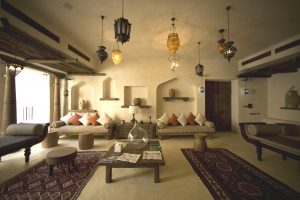
What is your favourite element of Qatari architecture?
Windows are my favourite element of architecture. Windows in traditional Qatari buildings, specifically houses, are so captivating. They are modest, simple, respectful, and down-to-earth. Above all, they are simply beautiful as they either open inward into a courtyard with its open-air sky and central native vegetation, or outward into the shoreline, capturing the salty breeze and memories of sailors and the longing for their safe return.
Windows will always remain a source of inspiration to architects, designers, and city dwellers.
What can people learn about when they examine Qatari architecture?
Lessons learned from Qatari architecture are countless. Qatari architecture teaches evolution; how things grow and evolve in line with the requirements of the time. It also teaches critical thinking in terms of giving the observer a chance to reflect, contemplate, and rethink the drawbacks of urbanism because growth has its own drawbacks too.
Qatari architecture teaches flexibility in keeping up with the fast-moving wheel of change, while maintaining its link to a foundation that is anchored in authenticity. Qatari architecture teaches ambition and global integrity as it welcomes new ideas and updated concepts to flow, sometimes undiluted, into the urban scenes of the city.
What are some of the key motifs of Qatari architecture?
Key design aspects of Qatari architecture include a simplicity of design, building height and patina. Some of the iconic buildings in Doha are marked by the simplicity of their geometry and functionality of their use. Building height relates to the low-rise, horizontal spread of buildings mostly seen in residential neighbourhoods. Whereas patina is the hue of colour that gives the city its artistic impression and visual appearance.
The Sheraton Grand Doha Resort & Convention Hotel is a great example of all three components. The Sheraton has been a landmark of the city and a timeless piece of architecture since its creation in 1978. Inhabitants of the city, especially locals, developed a sense of appreciation over generations for its structure and uniqueness. Although it was built decades ago, the Sheraton still stands firmly because of the simple design and robust construction methods.
How do you think Qatar is preserving its cultural and traditional past when it comes to architecture?
Architectural preservation takes two approaches, either to keep the old architectural landmarks conserved and preserved passively, or to revive the old architectural buildings into dynamic schemes and liveable projects. Both methods of preservation can be seen in Qatar.
The first method relates to conservation of historical monuments and heritage sites of towers and buildings such as Al-Zubarah archaeological site, while the second relates to revitalised projects that maintain their uses such as Souq Waqif and Souq Al-Wakrah.
There is a third, promising trend in cultural and traditional preservation, which is learning from the past and then remodelling it in the form of innovative projects. Msheireb Downtown is the pioneer project in this trend.
Renowned baker and chef Sara Ahmed Al Sayyed is a graduate of Le Cordon Bleu in Paris, where she fostered the passion for her profession that had first begun as a teenager. Sara recalls scrapbooking recipes when she was younger and teaching herself how to bake, eventually turning this interest into one of Qatar’s most successful bakeries.
After completing her graduate studies, she embarked on her culinary journey. “I was traveling between London and Paris to meet famous professional chefs in the industry such as Cédric Grolet, learning the fundamentals of pastry and croissant making.”
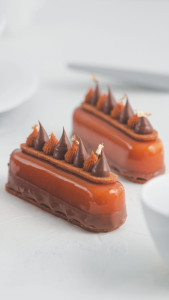
Sara decided to turn her passion into a business where she could share her experience with people as a certified trainer, and began offering menu consultations in 2018.
With the support of Qatar Development Bank, Sara opened the wholesale bakery ‘Société’ in 2017. “The bakery focuses on high-end artisan baked bread. It was inspired by my journey learning how to perfect Parisian bread and cakes.”
With a keen eye for detail, Sara looks to perfect every item on her menu. “I study the essence of each spice and find out where it can fit in terms of the category of the dish, whether under pastry or bistro items.”
Sara continued on to become a founder of Cho Cho Mai, a pan-Asian restaurant specialising in ready-made meals. She surveyed the location, Downtown Mesheirb, and found out what was missing in the culinary offerings. Cho Cho Mai has since become a popular spot, serving pan-Asian food at an affordable price.
As a self-made baker and entrepreneur, the future shines bright for Sara. She believes that passion is the main drive to accomplishment, and to her many loyal customers and social media followers, Sara says: “invest in yourself, travel the world, and get inspired then create your own line.”
The Heenat Salma Farm is a multidisciplinary project at the heart of Qatar dedicated to holistic methods in agriculture, architecture, and community development. By transforming a local traditional farm into an organic permaculture centre growing desert-friendly plants and vegetables, the team are supporting the development of Qatar’s renewable, home-grown food supply. Q Life interviewed the people behind the farm to learn more about their vision for a sustainable future.
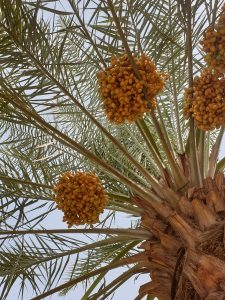
What was the inspiration to found the Heenat Salma Farm?
The fast-paced development of Qatar is a remarkable feat, showing the potential for an arid nation to adapt to the harsh environment in which it finds itself. Qatar is home to millions of people from all over the world, and with that comes the responsibility to ensure sustainability and resilience.
Heenat Salma Farm is not just a farm, but a community with multiple creative and well-being missions joined by a commitment to developing and inspiring resilience. We can drive change that powers meaningful action beyond our walls.
Tell us more about the regenerative agriculture methods at Heenat Salma Farm.
The farm practices regenerative agriculture, a practice of cultivating and maintaining vital soil. The holistic methods of Heenat Salma Farm offer an alternative model, allowing the farm to be fully sustained without the use of any chemicals.
The farm also practices simple techniques that bring animal waste, plant waste, and soil into a healthy relationship, ensuring every element promotes fertility. The production of natural manures, collected by using what is available at the farm, can potentially eliminate the dependence on chemical fertilizers, enabling the land to move towards a natural equilibrium.
What is the benefit of having a sustainable farm structure specifically in Qatar?
Our mission is to create an community for education and social engagement, spreading the values of permaculture and the philosophy of working with, rather than against, nature. The methods applied at the farm, the design of our products and services, as well as our philosophy, are all rooted in traditional knowledge and values.
This project is about shaping the mindset of future generations of Qatari people by raising awareness, promoting education, and spreading traditional values to a younger generation.
What are some of the produce being farmed at Heenat Salma Farm?
We currently grow 30 different crop varieties, including carrot, coriander, beetroot, parsley, tomato, eggplant, kohlrabi, broccoli, cauliflower, and capsicum (to name just a few). The farm now boasts a large variety of homegrown organic fruits, vegetables, dairy products, and eggs, and will soon feature naturally sourced honeys and meats.
What do you hope guests take away from their time at Heenat Salma Farm?
The spaces we design at Heenat Salma Farm positively influence and shape the way our guests feel. We design interiors that prioritize well-being; for example, we developed our lodges using traditional tents positioned around a central courtyard with a central fire. This feature creates a natural anchor that instils a sense of community and belonging on the outside, while the tent interiors provide simple, private, and refined dwellings.
We are seeing an enormous positive response to the atmosphere of Heenat Salma Farm and to the spaces that encourage them to live in the moment, rather than experiencing the world through the lens of their phone.
What are some of the elements of Qatari culture and traditions that are incorporated at Heenat Salma Farm?
Qatari tradition takes nature to be of divine value and thus must be treated with the reverence it deserves, since everything is imbued with the power of consciousness. The culture of reverence, respect and honesty are amongst the key Qatari values we are incorporating at Heenat Salma Farm.
What are some of the plans for the future of Heenat Salma Farm?
Our driving purpose is to empower communities and preserve legacies by reviving local artisanship, vernacular architecture, traditional agriculture, and holistic education. Through carefully designed curriculums, we intend to introduce a refreshed look on lifestyle, wellness, art, and culture to the communities with whom we work.
In 12-18 months, we plan to see school buses and family cars parked by the farm. We will be offering a truly unique service; an opportunity to learn while getting a first-hand experience of farming and gardening in a real working environment.